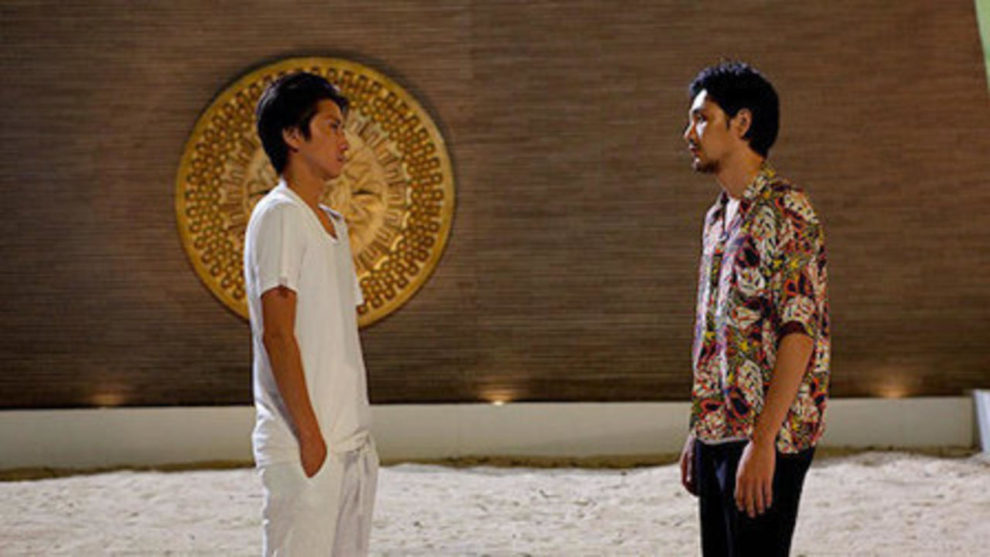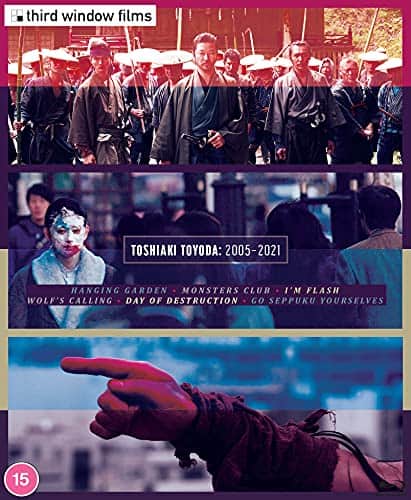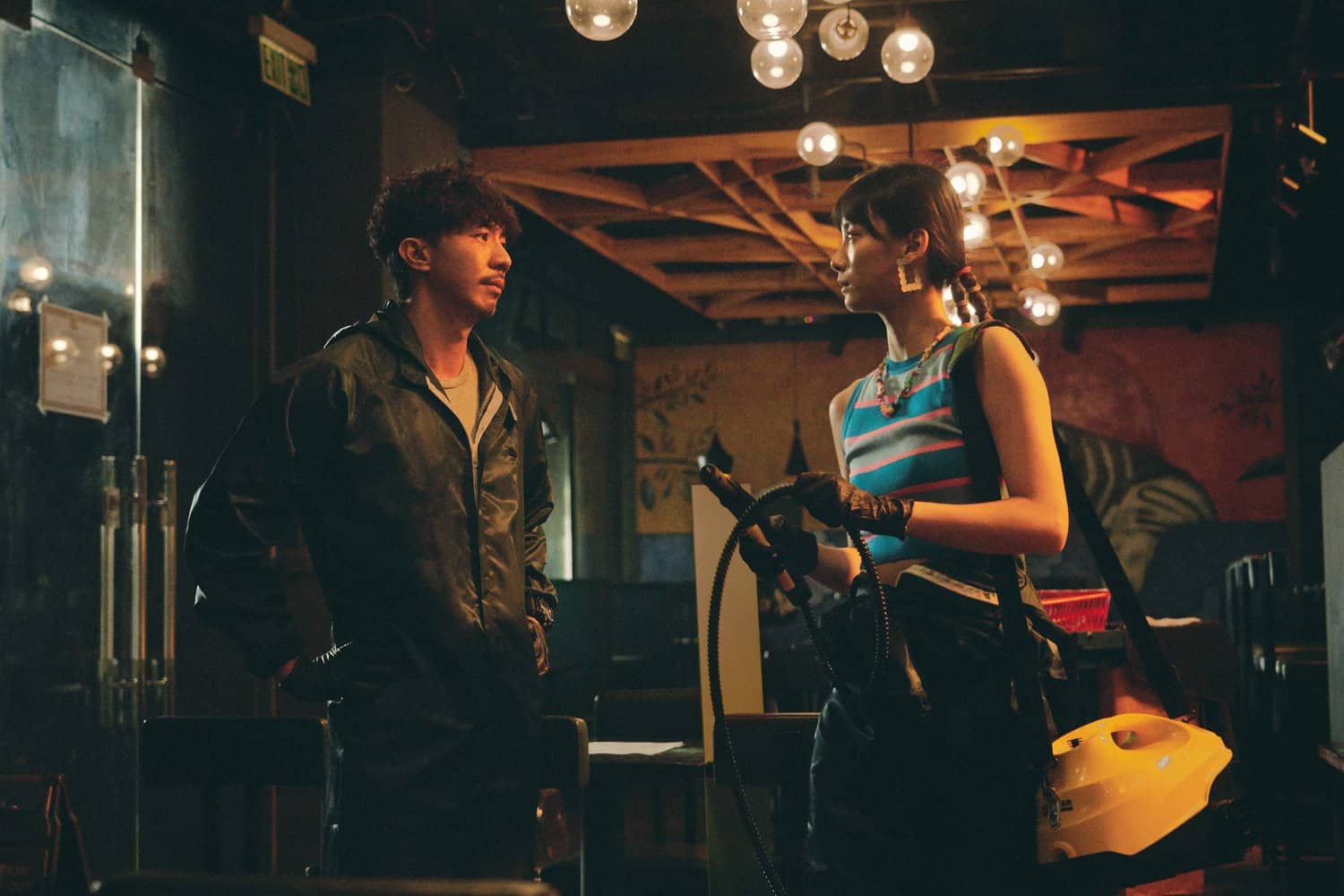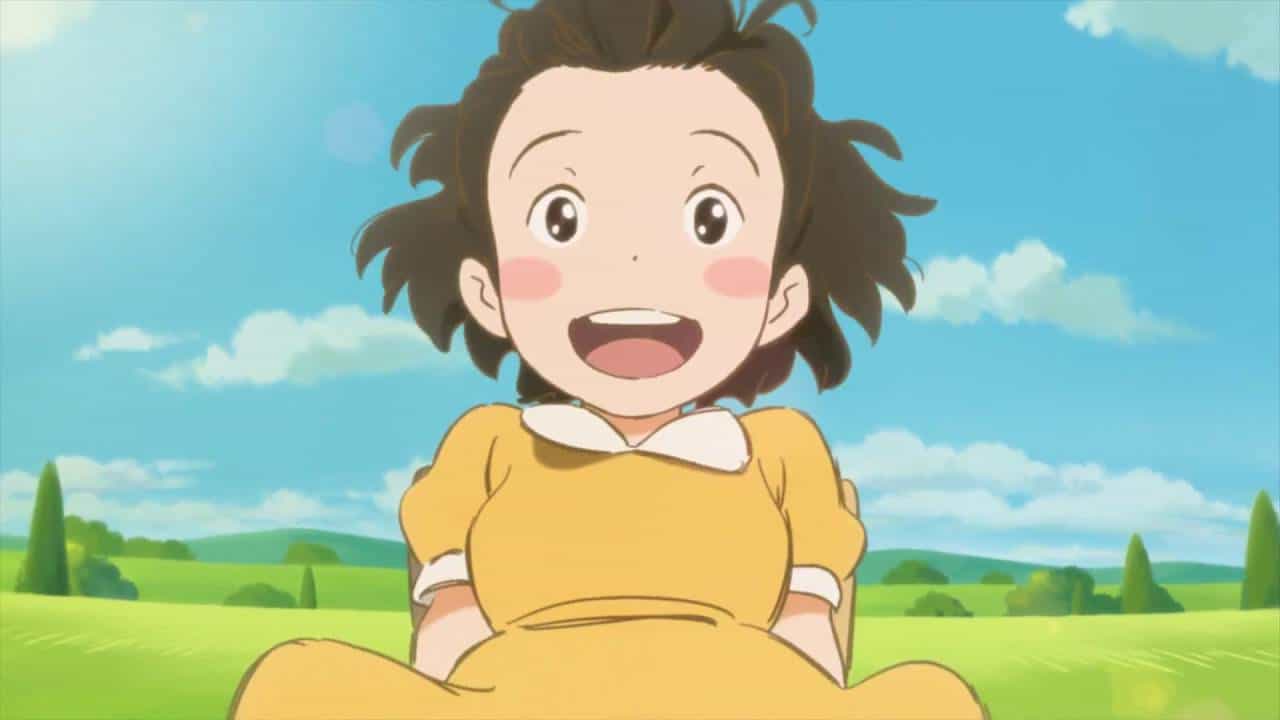In the face of great catastrophes, many people tend to turn to religion or spiritualism to make some sense of what has happened and to find some solace in the idea of an afterlife. When Toshiaki Toyoda was approached by actor and producer Harada Yoshio, he wanted to talk with him about making a film about the events of that day, but it seemed rather tactless to start a project so soon after what had happened. Instead, he turned his attention to the story of a cult leader, inspired by a former Hare Krishna member who, at a very young age, started his own church in California, where he soon became quite popular and wealthy. “I'm Flash” explores how people develop beliefs and questions whether they are just a distraction of the inevitable, or whether there is something very profound about them, while at the same time manages to tell a story about the link between cults and capitalism.
Buy This Title
on Amazon
In Tokyo three men (Ryuhei Matsuda, Shigeru Nakano, Kento Nagayama) are approached by the agent of popular cult leader Rui (Tatsuya Fujiwara) who wants to employ them as bodyguards. Even though they are skeptical about the job at first, considering the reputation of the capricious man they are supposed to protect, they soon find the money is well worth it, as Rui spends most of his time in his luxurious home, secluded from the outside world. After an accident, which caused the death of another driver, the once charismatic leader is not himself anymore, still shell-shocked by the girl who was with him at the time of the collision, and who is now in a coma. However, while he mainly wants to remain hidden from the world, Rui's sister (Mayu Harada) and his mother (Michiyo Ookusu) try to urge him to talk with the press.
After some contemplation, especially about the fate of his father and grandfather, who led the cult before it was his time, Rui eventually decides to disband the church, a decision which brings him in conflict with his relative and the upper members of the church's hierarchy. Although he claims he has found a clearer and pure faith, his family realize Rui has become a liability and decide to give their son's bodyguard a lucrative offer to take the life of the man they are meant to protect.
Similar to Sion Sono's “The Whispering Star”, “I'm Flash” is Toyoda's way of reflecting on the events of 3/11 and its aftermath. In the role of Rui, actor Tatsuya Fujiwara gives an impressive performance as a man caught in a spiritual and emotional conflict as a result of his own shortcomings, or rather in lack of foresight. Unable to provide the solace and guidance he needs after the accident, he finds himself incapable and useless, an emotion he somehow disguises through his frequent walks to the beach, where he goes diving and hunting for fish. Through the performance of his lead actor, along with Shigemori Toyataro's cinematography, Toyoda manages to capture the spiritual emptiness of his existence, his life in what seems like a golden cage and a system of fate which has become his prison.
At the same time, there is something more profound about the repetitive, life-affirming slogans of Rui. While exploited as a means to make money, provide for his brother's plastic surgery and his sister's luxurious lifestyle, there is a bitter irony in the realization of the truth behind the slogans, even if Rui's moment of epiphany leads to unwanted results for his relatives. Through the use of sarcasm, and the contrast to the more “basic” needs of the guru's newly employed bodyguards, Toyoda exposes a system which aims to return to the status quo, while diminishing true spirit right from the start.
In the end, “I'm Flash” is a blend of drama and satire, and another great show of talent from Toshiaki Toyoda. Aside from its performances and cinematography, it is the feature's humor and acidic portrayal of the state of belief and spiritualism in an increasingly superficial, capitalist system.

















